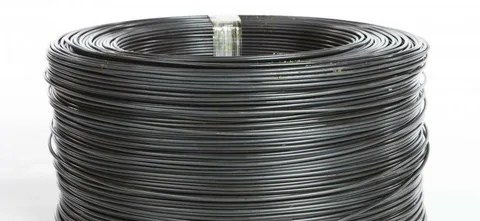When working on construction, landscaping, or even artistic projects involving metal or concrete, tie wire plays a crucial role in securing materials in place. However, selecting the correct type of tie wire isn’t always straightforward. This guide will help you understand how to choose the right tie wire for your project by breaking down the key factors to consider.
What Is Tie Wire?
Tie wire is a flexible, durable wire used to fasten items such as rebar, fencing, or mesh together. It’s commonly made from materials like black annealed steel, galvanized steel, or stainless steel, each offering different benefits in terms of strength, flexibility, and corrosion resistance.
Factors to Consider When Choosing Tie Wire
1. Material Type
- Black Annealed Wire: Soft and easy to twist, ideal for general construction.
- Galvanized Wire: Offers corrosion resistance, great for outdoor or damp environments.
- Stainless Steel Wire: Highly resistant to rust, best for marine or high-humidity projects.
Choosing the correct material is essential when learning how to choose the right tie wire for your project, especially if longevity and environmental factors are a concern.
2. Wire Gauge
Wire gauge refers to the thickness of the wire. Common tie wire gauges range from 16 to 20:
- 16-Gauge Wire: Thicker and stronger, ideal for heavy-duty tasks like securing rebar in concrete.
- 18-20 Gauge Wire: Thinner, suitable for light-duty work such as fencing or gardening.
The wire gauge affects both the strength and flexibility, which are critical aspects when determining how to choose the right tie wire for your project.
3. Project Type
The nature of your project greatly influences your choice:
- Construction Projects: Require strong, durable tie wire like 16-gauge black annealed or galvanized.
- Landscaping and Gardening: May benefit from lighter, corrosion-resistant galvanized or plastic-coated wire.
- Artistic or Craft Projects: Might call for finer wire, with aesthetics and malleability in mind.
4. Environment and Exposure
Will your project be exposed to the elements? If so, opt for galvanized or stainless steel wire to ensure longevity. Moisture and chemicals can degrade untreated steel quickly, compromising the structure and safety of your project.
Tips for Using Tie Wire Effectively
- Use proper tying tools (like pliers or tie wire guns) for efficient and secure knots.
- Cut only what you need to avoid waste.
- Always wear gloves to protect your hands from sharp ends and tension.
Conclusion
Understanding how to choose the right tie wire for your project is essential for ensuring safety, efficiency, and durability. By considering material type, wire gauge, the environment, and your specific application, you can confidently select the best tie wire for the task at hand.
Whether you’re reinforcing concrete or setting up a garden fence, the right tie wire makes all the difference.


